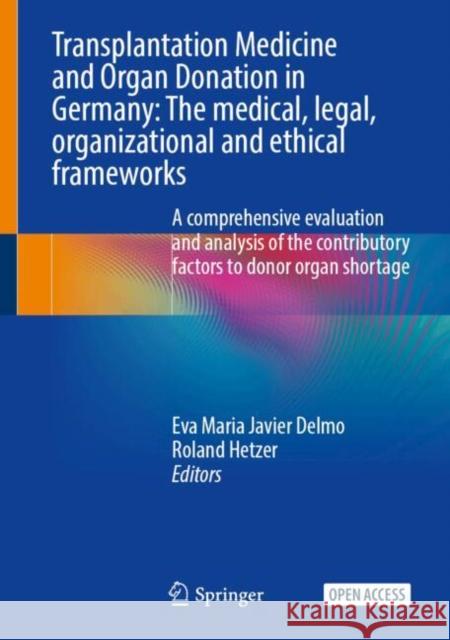Transplantation Medicine and Organ Donation in Germany: The Medical, Legal, Organizational and Ethical Frameworks » książka
topmenu
Transplantation Medicine and Organ Donation in Germany: The Medical, Legal, Organizational and Ethical Frameworks
ISBN-13: 9783031494413 / Angielski
Planowany termin premiery książki: 11-08-2026
Jeśli chcesz zamówić tę książkę skontaktuj się z nami.
Powiadom mnie, gdy książka będzie dostępna.
Jeśli chcesz zamówić tę książkę skontaktuj się z nami.
Powiadom mnie, gdy książka będzie dostępna.
Transplantation Medicine and Organ Donation in Germany: The Medical, Legal, Organizational and Ethical Frameworks
ISBN-13: 9783031494413 / Angielski
Planowany termin premiery książki: 11-08-2026
Jeśli chcesz zamówić tę książkę skontaktuj się z nami.
Powiadom mnie, gdy książka będzie dostępna.
Jeśli chcesz zamówić tę książkę skontaktuj się z nami.
Powiadom mnie, gdy książka będzie dostępna.
cena promocyjna 271,53
(netto: 258,60 VAT: 5%)
285,82
Rabat: -5%
Najniższa cena z 30 dni: 225,88
(netto: 258,60 VAT: 5%)
Rabat: -5%
Najniższa cena z 30 dni: 225,88
Książka dostępna od:
11-08-2026
11-08-2026
Darmowa dostawa!
Kategorie BISAC:
Wydawca:
Springer International Publishing AG
Język:
Angielski
ISBN-13:
9783031494413











